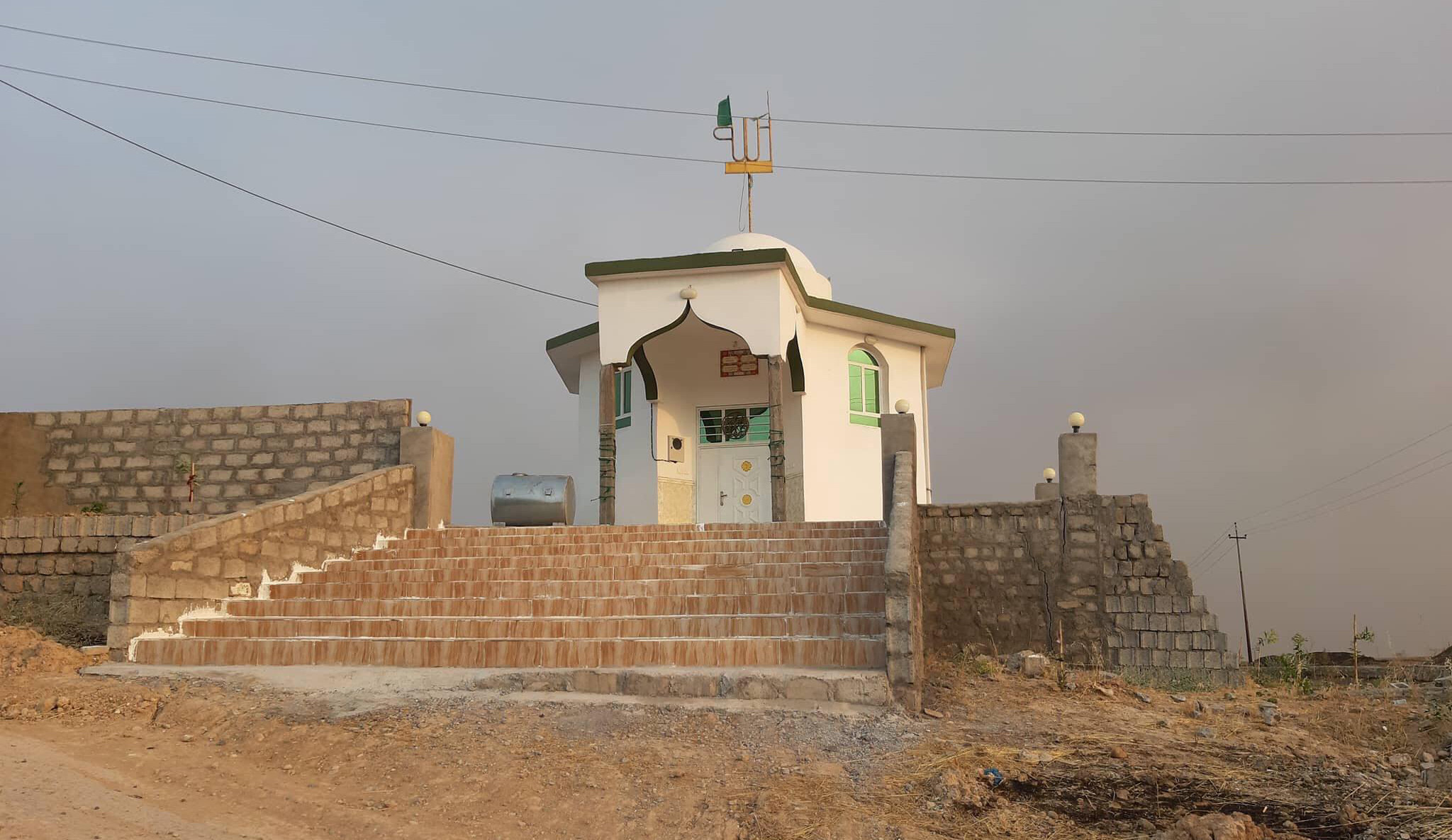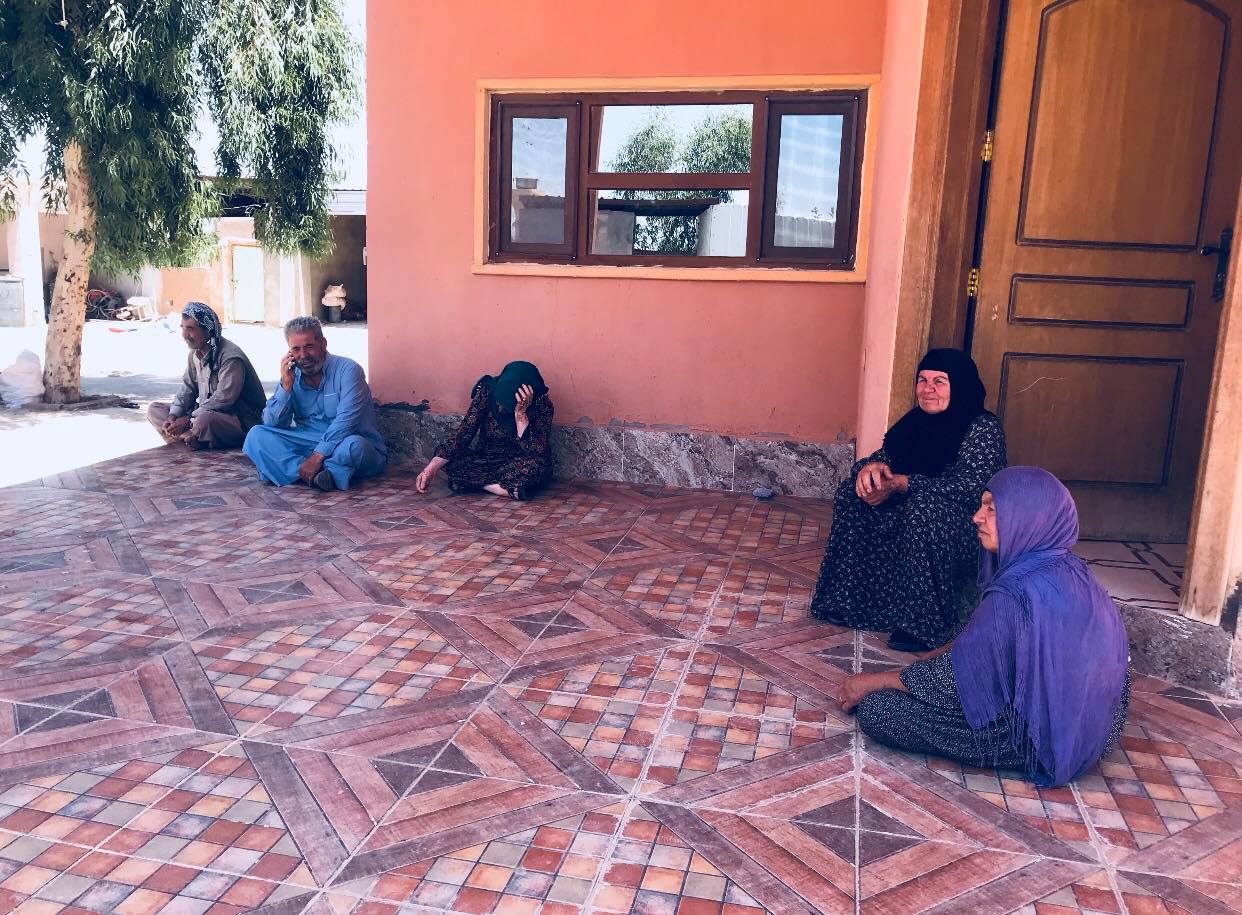Members of the Kaka'i community do not have special places for worship like other religions, they can worship in any place and at any time.
For the Kaka'is, religion is more about spirituality than organizing and gathering. But some of them see the lack of places of worship as a kind of neglect for their religion.
“In the philosophy of the Kaka'i religion (Yarsanism), there is more emphasis on the soul, because in any place that is clean, and where non-Kaka'is aren’t present, it is possible to perform religious ceremonies,” said Rajab Asi (42).
Asi is a Kaka'i from Daquq district (south of Kirkuk) and head of the Mithra, a Yarsani organization. He confirms that they don’t have places of worship similar to mosques, churches and temples.
In the philosophy of the Kaka'i religion (Yarsanism), there is more emphasis on the soul
Conversion to the Kaka’i religion is not possible. And worshipping is mostly done solitary rather than in a group.
"Just as the Muslims face the Qibla or Mecca, and Ezidis Lalish temple, we have Prdéwar where Sultan Sahak is buried. It is a sacred place where people go for pilgrimage," said Rajab.
Prdéwar is located near Du’aw in the town of Nawsoud in the Hawraman region in Kirmashan (Kermanshah) province in Iran.
There are 18 Kaka’i shrines across Iraq, seven of them located in Kirkuk province.
The most famous of them are: sayed-Ibrahim Shrine in Baghdad and the sayed-Baba Yadgar Shrine in Iran, which most Kaka'is visit to pray for curing diseases and fulfilling their wishes.

The Kaka'is are also known as Ahli Haq or Yarsan. They have their own religion but it has not been officially recognized in the Iraqi constitution.
Sami Raf’at, a 57-year-old Kaka’i from Daquq, told KirkukNow: "Kaka'i was not recognized as a separate religion, neither in the Iraqi constitution nor in the constitution of the Kurdistan Region. That’s why no entity takes the responsibility of building places of worship for this religion."
Sami believes that having places for worship and religious gatherings is necessary.
The Kaka'is are a wronged and marginalized minority
"The Kaka'is are a wronged and marginalized minority. All sides take their turn in exploiting us for their own interests but do nothing for the Kaka’i religion,” Sami added.
The outbreak of the Covid-19 pandemic has had an effect on the followers of the Kaka’i. Although they do not have group rituals and ceremonies, the measures imposed, especially the curfew, prevented them from visiting their shrines, especially their holiest ones which are located in Iran.
There is a gathering hall in Halabja for social events, but in most other places Kaka’i funerals are held at home or in tents.

Kaka’i is recognized as a religion in the Minorities’ Law of the Kurdistan Regional Government.
Amir Mawloud, an official at the Ministry of Endowments and Religious Affairs of the Kurdistan Regional Government, told KirkukNow: "Kaka'is practice their religion and hold their ceremonies with complete freedom, but we do not meddle in their religious affairs and that is not our business."
And he indicated that there is no statistics on the number of shrines and religious places of Kaka'is. "We deal with their religion from the standpoint of religious freedoms."
Next to Kirkuk province, Kaka’is live in Halabja, Nineveh, Erbil, Khanaqin and other places in Diyala. Their numbers are estimated to be around 100,000.
Followers of the Kaka’i religion believe that “all places are made by God the creator. God is close to pure hearts, and gets closer.” This is the reason why places of worship are not essential for them, as Akbar Karim explained to KirkukNow.
50-year-old Karim lives in Halabja and has expertise on his religion. “The soul and one’s true intentions are put in the centre, so that they have a positive reflection on society.”




